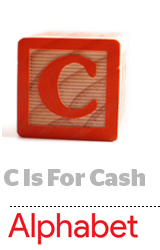 The Alphabet revenue train is full steam ahead, as the company reported more than $31 billion in revenues in the first quarter of 2018, a 26% jump from the same period last year, the company announced in its earnings report Monday. Programmatic and the core search business were the biggest driver of that growth, rising by more than $5 billion year over year.
The Alphabet revenue train is full steam ahead, as the company reported more than $31 billion in revenues in the first quarter of 2018, a 26% jump from the same period last year, the company announced in its earnings report Monday. Programmatic and the core search business were the biggest driver of that growth, rising by more than $5 billion year over year.
Many industry observers will be keenly tracking whether brand safety and consumer privacy controversies can dent the revenue momentum of companies like Google and Facebook.
So far, the answer seems to be “Not even close.”
The 26% growth rate this year represents an acceleration from Q1 2017, when Alphabet’s revenue increased by 22% year over year – back when YouTube, not Facebook, was drawing negative attention.
Meanwhile, Google’s “other” revenues section is up more than a billion. This is the first time it’s reporting the home device company Nest in that Google segment.
Google was especially strong on its own properties, where revenue grew by more than $4.5 billion, compared to a $650 million gain for publishers in its network.
YouTube mystique
YouTube, which the company does not break out for earnings, was a focal point for investors as well as Google CEO Sundar Pichai and CFO Ruth Porat.
Pichai said the company’s machine learning technology to monitor content at scale is improving fast, with over 6 million videos removed in the past quarter, 75% of them before being viewed once.
The video platform also has a packed product road map, with investments in mobile live streaming as well as nonadvertising monetization products, including subscriptions, VR and YouTube Super Chat, which lets viewers pay to highlight and pin messages atop the comment section of a live stream. Google is also beta-testing sponsorships, merchandise sales and ticketing.
GDPR-ready
Google’s Q1 is the last earnings report before the EU data and privacy regulations come into effect in May, and investors pressed the company on potential impacts after the law is implemented.
“GDPR is a fairly new public topic, but for us, it’s not,” Pichai said.
Reconciling GDPR with Google’s media and technology partners will be “a years-long effort,” he added.
Google’s core search business doesn’t rely on personal or third-party data, since the targeting is based on query keywords, so it’s less exposed to GDPR than other advertising technology.
TAC still grows
Traffic acquisition costs (TAC) are still growing, and the percentage of revenues that go to publishers in its network rose from 70% last year to 73%. TAC as a percentage of Google’s overall advertising grew from 22% to 24%.
As in previous quarters, Google executives shrugged off rising TAC rates and even framed it as a growth investment. The higher the TAC, the lower the “tech tax” and the more price leverage Google has in the market.
The growth of programmatic media sold per impression is good for Google, Porat said, but it comes with higher fees to distribution partners than the click-based model Google has historically used.
“We have clarity around compelling opportunities” to invest in long-term growth opportunities, she said, and will continue to place those bets with confidence.
This post was syndicated from Ad Exchanger.

More Stories
TBWA\ New Zealand event provides insights into the future of sport
Fashion Brands Are Now Partnering With Media Titans to Spur Significant Sales Boost
Together reports for media and data duties at Inghams